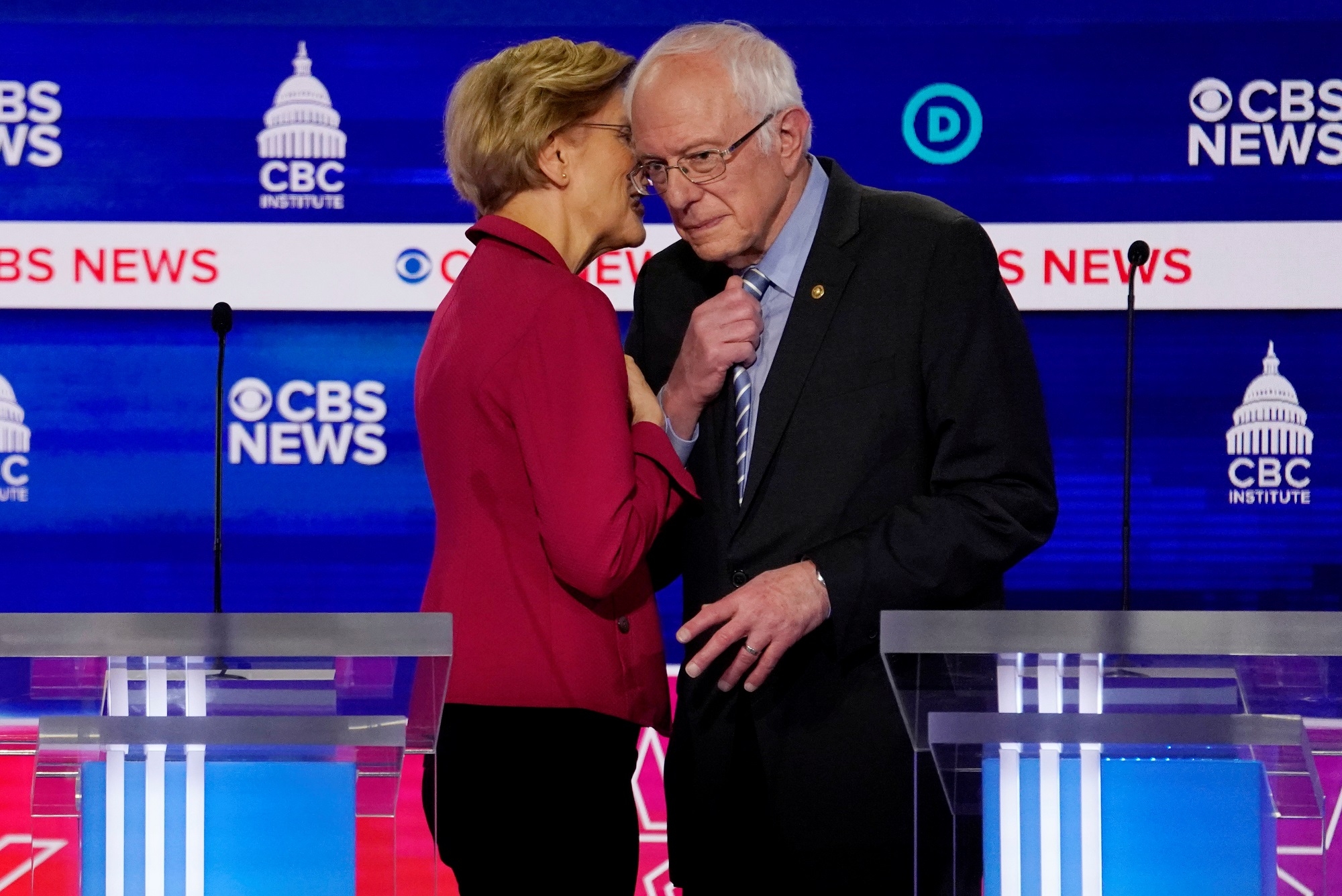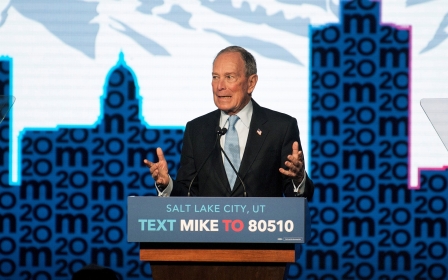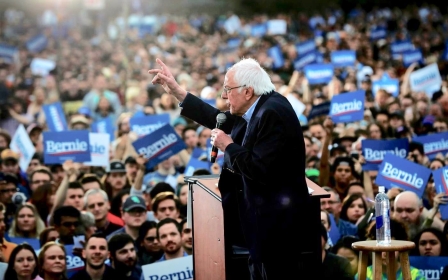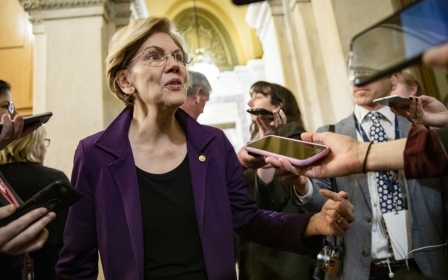Democratic debate: Candidates weigh in on Israeli-Palestinian conflict

The South Carolina Democratic debate was defined by chaos, interruptions, personal attacks and jeers from an unruly audience.
But the moderators, who largely failed to control the tempo of the conversation, did manage to ask a couple of questions on foreign policy on Tuesday to the candidates vying to replace Donald Trump as the commander-in-chief of the US armed forces.
The previous debate did not include a single mention of foreign policy.
Bernie Sanders: We cannot ignore the suffering of Palestinians
With more than a third of the delegates required to win the nomination at stake in elections over the next week, Senator Bernie Sanders, the frontrunner in the race, was questioned about his decision to skip the annual conference of the pro-Israel lobby, AIPAC.
New MEE newsletter: Jerusalem Dispatch
Sign up to get the latest insights and analysis on Israel-Palestine, alongside Turkey Unpacked and other MEE newsletters
"I am very proud of being Jewish," Sanders said. "I actually lived in Israel for some months. But what I happen to believe is that right now sadly, tragically in Israel through Bibi Netanyahu, you have a reactionary racist who is now running that country."
The Vermont Senator also reiterated his stance that US policy should be pro-Israel without ignoring Palestinians.
"I happen to believe that what our foreign policy in the Middle East should be about is absolutely protecting the independence and security of Israel," Sanders said. "But you cannot ignore the suffering of the Palestinian people."
The self-proclaimed democratic socialist, who was facing attacks from every direction on the stage, also refused to rule out returning the US embassy to Tel Aviv after Donald Trump had moved it to Jerusalem, declaring the holy city the capital of Israel.
The move enraged Palestinians and was rejected overwhelmingly by the UN General Assembly.
"The answer is it's something we would take into consideration," he said when asked about the issue.
Mike Bloomberg: You can't move the embassy back
Former New York City mayor Michael Bloomberg, who is so far the only Democratic candidate who has confirmed attending the AIPAC conference, drew a sharp contrast with Sanders on Israel.
Bloomberg said the embassy would stay in Jerusalem if he were to be elected president.
"You can't move the embassy back," he said. "We should not have done it without getting something from the Israeli government. But it was done and you're going to have to leave it there."
He also said he supports a two-state solution to the conflict, where Palestinians would be "accommodated".
"The real problem here is you have two groups of people, both of whom think God gave them the same piece of land and the answer is to obviously split it up," the ex-mayor said.
Bloomberg also referred to Israel's settlements in the Occupied West Bank, which are seen as illegal by much of the world as "new communities", saying that they should not have been built.
"Settlements," Sanders shouted correcting him from across the stage.
Elizabeth Warren: 'Palestinians have a right to be treated with dignity'
Senator Elizabeth Warren also weighed in on the question, saying that it is not up to Americans to determine what the resolution for the conflict should look like.
"The Israelis have a right to security, and the Palestinians have a right to be treated with dignity and to have self-determination - that is a two-state solution," she said.
Warren criticised Trump for "putting a thumb on the scale" in favour of Israel, which she said is moving the sides further away from finding their own solution.
"We want to be a good ally to everyone in the region," she said. "The best way to do that is to encourage the parties to get to the negotiating table themselves."
Warren either dodged or misunderstood the question on whether she would move back the embassy in Tel Aviv, saying "it's not ours to do", even though the location of US diplomatic post would be entirely in the hands of the president and her or his State Department.
Middle East Eye delivers independent and unrivalled coverage and analysis of the Middle East, North Africa and beyond. To learn more about republishing this content and the associated fees, please fill out this form. More about MEE can be found here.




